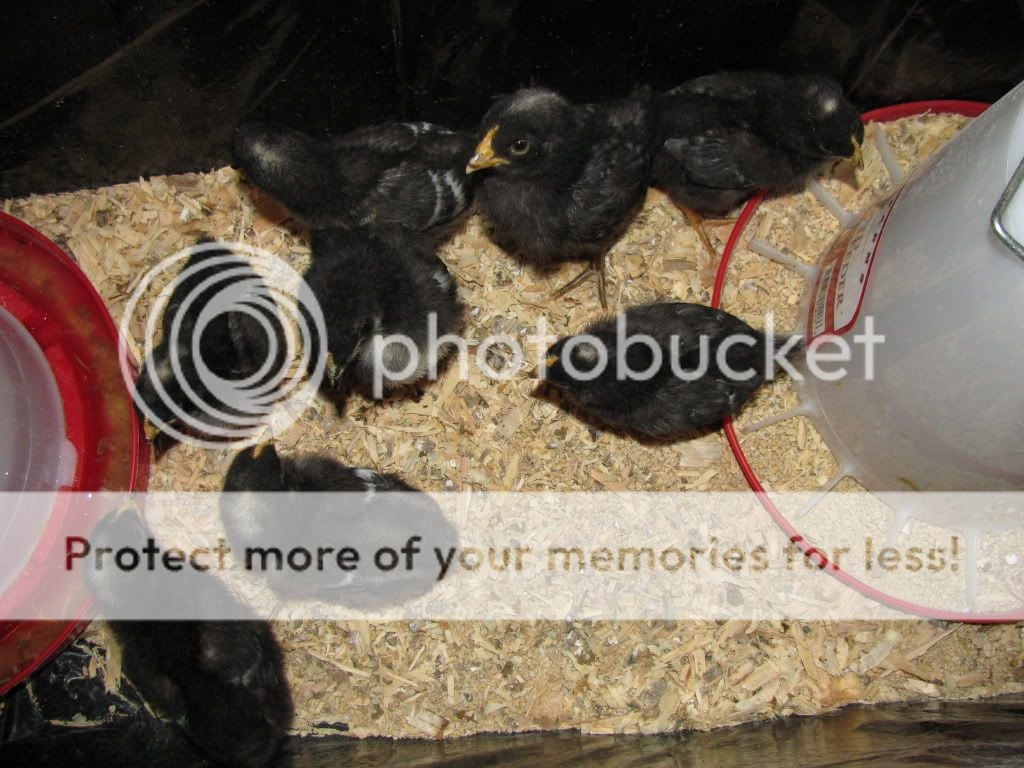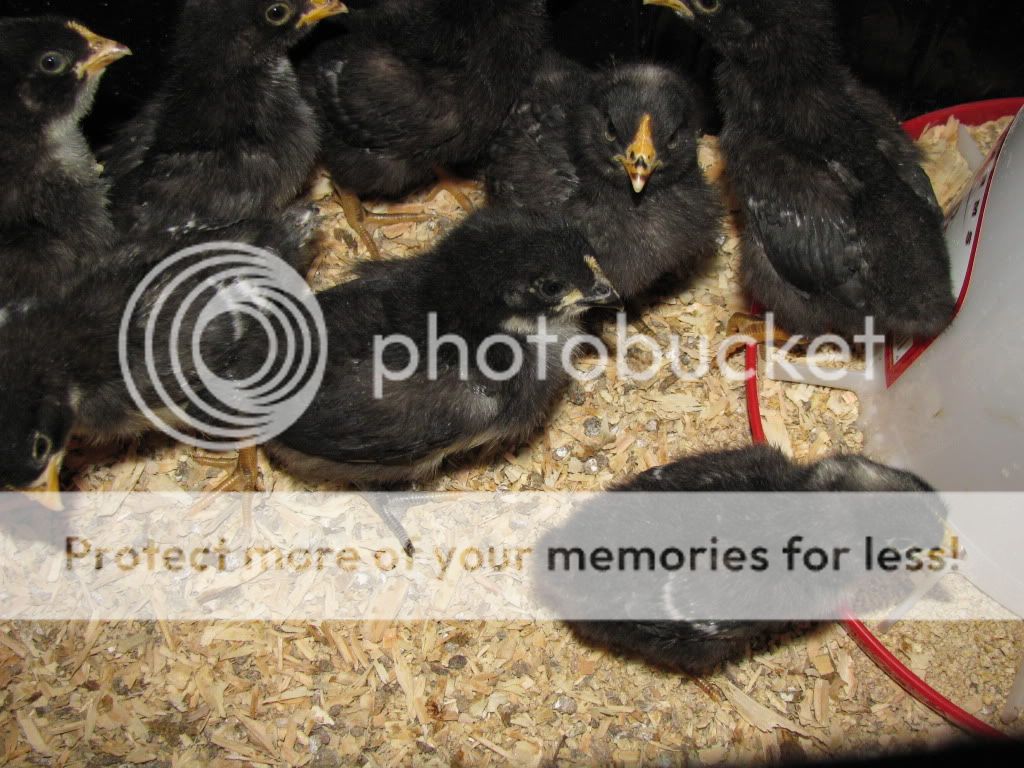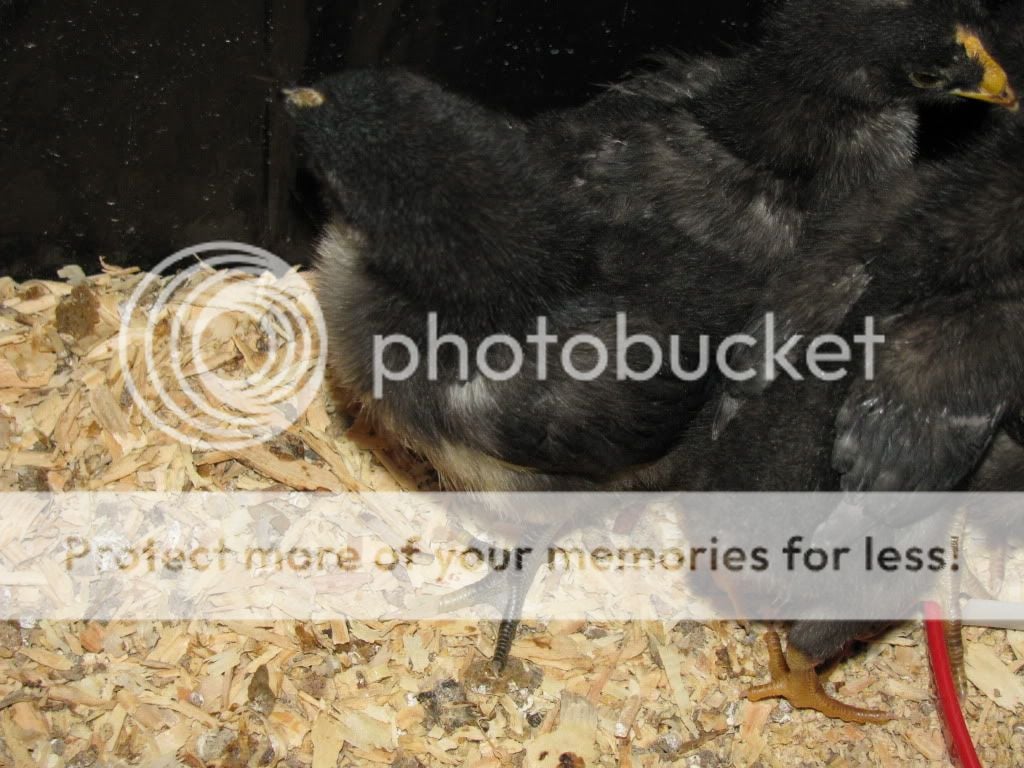@ ascorbic - Thank you so much for the photos posted to the other thread! None of mine are anywhere near as light as that little roo. I've posted another pic of all my peeps, along with two close ups of "little black-foot"! haha You'll note that she also has an almost completely dark beak, unique to her siblings.
As for the potential for crossing, the adults all appeared to be the perfect Dominique specimens, although the breeder did have RIRs for breeders, as well. There was a separate pen for non-breeding hens. He seemed to have the different varieties well separated (the chicks were all together). I would say that there were about 14 or so of the Dominiques and maybe 4 RIR in the brooder, but the difference was pretty obvious. She was the only one with the super dark feet, beak, and no spot. She is showing light points elsewhere, but pretty dark all around.
Like you, we've gotten into the collecting of animals and haven't gotten around to kids yet. We also have Jack Russells, along with four barn cats, and four horses (two full size and two miniatures)!
All my peeps...

Miss Blackfoot


As for the potential for crossing, the adults all appeared to be the perfect Dominique specimens, although the breeder did have RIRs for breeders, as well. There was a separate pen for non-breeding hens. He seemed to have the different varieties well separated (the chicks were all together). I would say that there were about 14 or so of the Dominiques and maybe 4 RIR in the brooder, but the difference was pretty obvious. She was the only one with the super dark feet, beak, and no spot. She is showing light points elsewhere, but pretty dark all around.
Like you, we've gotten into the collecting of animals and haven't gotten around to kids yet. We also have Jack Russells, along with four barn cats, and four horses (two full size and two miniatures)!
All my peeps...

Miss Blackfoot




